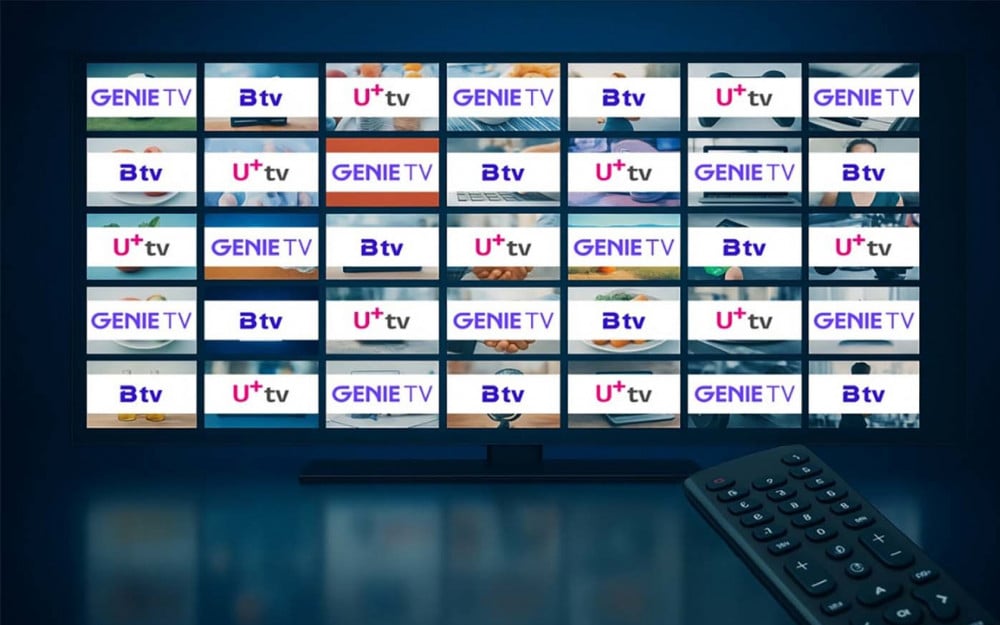
Could this mark a turning point in how TV ratings are measured?
The era of outdated, sample-based viewership tracking might be on its way out, as a new IPTV-based integrated viewing data system, capable of capturing full-scale viewer behavior and broadcast consumption patterns, has received academic validation for its accuracy.
Experts suggest this could provide a breakthrough for small and struggling media operators like Program Providers (PPs) in the competitive broadcasting market.
On May 21, the Korea Society for Broadcasting and Telecommunication Studies hosted a seminar titled “New Growth and Coexistence in Broadcasting and Advertising: Finding Answers in Media Viewing Data” at the Seoul Club Hall, 18th floor of the Korea Press Center in Seoul. The event was organized in collaboration with the Korea IPTV Broadcasting Association.
The seminar addressed the reliability verification of the "IPTV Integrated Viewing Data Platform" currently under development by Korea’s three major IPTV providers (KT, SK Broadband, and LG Uplus), set for launch later this year. Discussions covered the motivation behind the platform’s development, its expected impact, and the potential changes and opportunities it could bring to the broadcasting industry.
The event featured two key presentations followed by a panel discussion. The presentations focused on the necessity and credibility of IPTV viewership data.
Sung Yoon Taek, Senior Research Fellow at the Korea Broadcasting Advertising Corporation, opened with a presentation titled “Exploring the Potential and Expansion Strategies of New Viewing Data.” He explained how IPTV’s integrated viewing data could transform the broadcasting industry.
Sung Yoon Taek pointed out the limitations of traditional sample-based ratings systems, where small channels often register 0% ratings due to limited sample sizes. In contrast, IPTV data, derived from 18 million subscribers via set-top boxes, can provide granular measurements of viewing behavior and ad exposure, which legacy systems miss. He predicted, “In a broadcasting environment that changes by the minute, IPTV set-top box-based data could boost not only the broadcasting industry but also revitalize advertising.”
The second speaker, Professor Hwang Yong Seok from Konkuk University, presented findings on “Verifying the Accuracy and Securing the Reliability of IPTV Viewing Data.”
Professor Hwang shared recent research by Konkuk University’s Digital Communication Research Center, showing that set-top box-based viewing time data from the three IPTV providers demonstrated higher accuracy than conventional panel-based systems.
His team analyzed the data using metrics such as Path Recognition Rate, the match rate of viewed channels; Total Error, the discrepancy between actual and recorded viewing times; and Time Recognition Error Tolerance Pass Rate, used in traditional viewing share validation studies.
Results showed a 97–99% path recognition rate (excluding device error models), and lower total error compared to panel-based methods. All three IPTV providers showed over 98% accuracy in the time recognition test.
Professor Hwang, the lead researcher, stated, “IPTV set-top box-based data will likely produce more accurate and trustworthy viewership metrics. If we address issues like difficulties in identifying individual viewing times, the data could lead to sophisticated media usage analysis and personalized service development.”
This marks the first academic study offering empirical evidence for the objectivity and potential application of IPTV viewing data in broadcasting, likely attracting significant attention across academic and industry circles. Most notably, this could provide visibility for small channels previously overlooked by traditional systems, potentially shaking up both the broadcasting and advertising industries.
The panel discussion, moderated by Professor Jun Beom Soo of Hanyang University, featured industry experts including Jeong Yong Chan (Senior Research Fellow, KISDI), Professor Park Min Kyu (Korea University), Im Seok Bong (CEO, Direct Media Lab), and Mo Jeong Il (VP, Digital First).
They discussed strategies for leveraging IPTV viewing data and the policy support required.
Lee Byung Seok, Chairman of the Korea IPTV Broadcasting Association, emphasized, “This seminar is significant as it includes the first formal verification of the credibility of IPTV set-top box viewing data. We expect this platform to strengthen the competitiveness of Korea’s media industry and create new business opportunities for smaller broadcasters.”
The traditional TV rating system in Korea relies on “people meters,” devices installed in selected households' TV sets. Viewers input their individual code when watching, so the system can log who watched what.
The core issue? This method has been around for over 30 years and no longer reflects modern viewing habits. Its small sample size distorts actual viewership and leads to inaccurate results.
Industry critics argue that the stagnant people meter method fails to keep up with today’s diverse media consumption trends. Furthermore, discrepancies between rating agencies’ data have undermined credibility. Inaccurate data affects program planning, content quality, and disproportionately impacts smaller channels by underreporting their audience share.
With IPTV’s real-time, large-scale data collection, a long-overdue shift in viewership measurement may finally be on the horizon.
SEE ALSO: 'Idol School' star Lee Hae In produces new virtual girl group 'OWIS'
 SHARE
SHARE















































